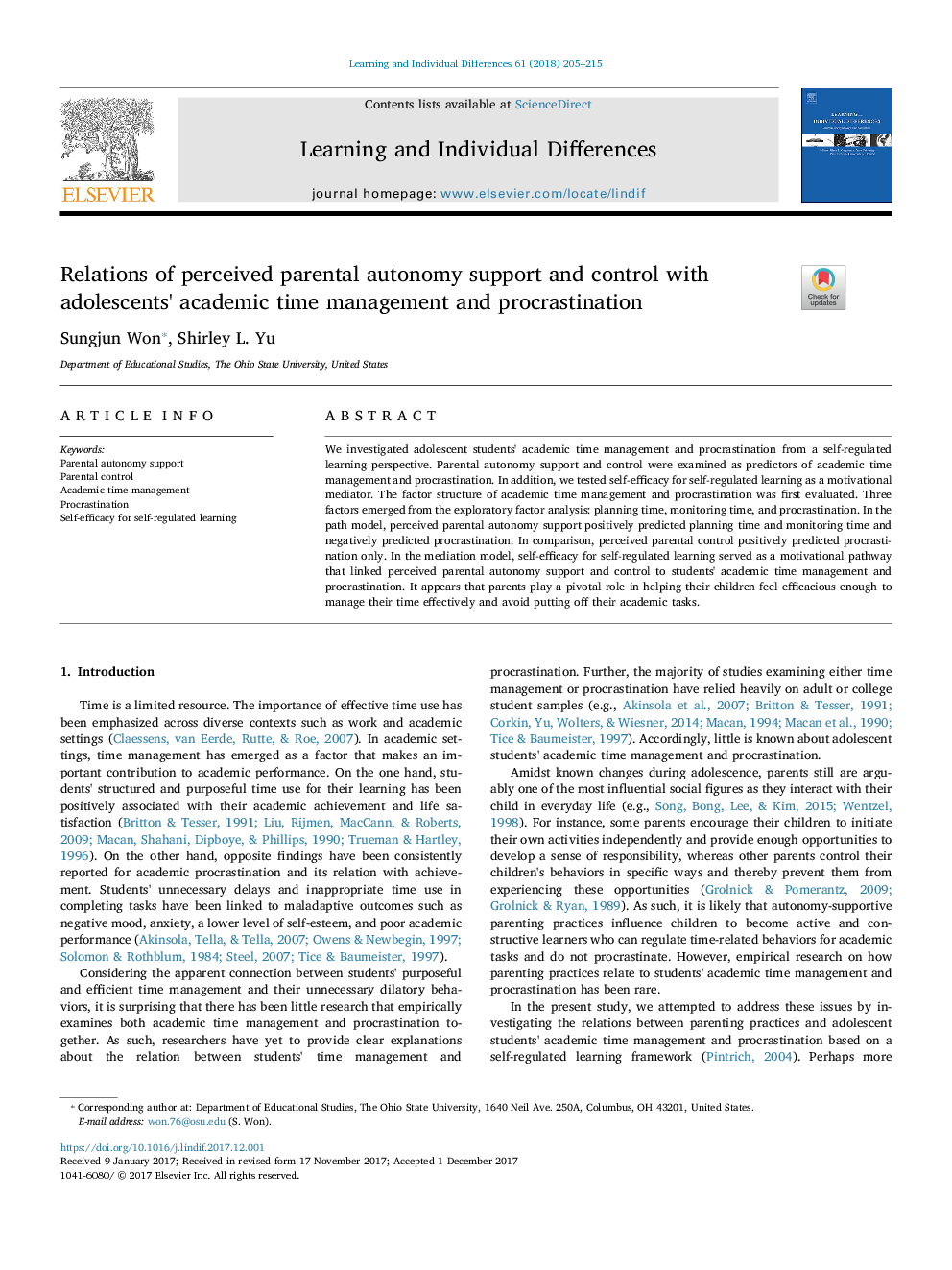ترجمه فارسی عنوان مقاله
روابط حمایت و کنترل استقلال والدین در نظر گرفته شده با مدیریت وقت دانشآموزان و تعلل
عنوان انگلیسی
Relations of perceived parental autonomy support and control with adolescents' academic time management and procrastination
| کد مقاله | سال انتشار | تعداد صفحات مقاله انگلیسی |
|---|---|---|
| 91065 | 2018 | 11 صفحه PDF |
منبع

Publisher : Elsevier - Science Direct (الزویر - ساینس دایرکت)
Journal : Learning and Individual Differences, Volume 61, January 2018, Pages 205-215
ترجمه کلمات کلیدی
حمایت از استقلال والدین، کنترل والدین، مدیریت وقت علمی، تعویق خودکارآمدی برای یادگیری خودکارآمد،
کلمات کلیدی انگلیسی
Parental autonomy support; Parental control; Academic time management; Procrastination; Self-efficacy for self-regulated learning;
ترجمه چکیده
ما مدیریت زمان دانش آموزان نوجوانان و تعویق از یک منظر یادگیری خود تنظیم شده را بررسی کردیم. حمایت و کنترل استقلال والدین به عنوان پیش بینی کننده های مدیریت و مدیریت زمان تحصیلی مورد بررسی قرار گرفت. علاوه بر این، ما خودآموزی را برای یادگیری خودمراقبتی به عنوان یک واسطه انگیزشی تست کردیم. ساختار فاکتور مدیریت زمان دانشگاه و تعویق در ابتدا مورد بررسی قرار گرفت. سه عامل از تجزیه و تحلیل عامل اکتشافی به دست آمد: زمان برنامه ریزی، زمان نظارت و تعویق. در مدل مسیر، استقلال ادراک شده والدین از زمان برنامه ریزی و زمان نظارت پیش بینی شده پیش بینی شده بود و پیش بینی شده بود که از تعویق بیفتد. در مقایسه، کنترل والدین درک شده، مثبت فقط پیشگویی را پیش بینی می کند. در مدل واسطه، خودکارآمدی برای یادگیری خودکارآمدی به عنوان یک راه انگیزشی مطرح شد که ارتباط حمایت خودمختاری درک شده والدین و کنترل مدیریت وقت دانشآموزان و تعلیق آنها را کنترل کرد. به نظر می رسد که والدین نقش مهمی در کمک به کودکانشان دارند تا به اندازه کافی کارآیی داشته باشند تا بتوانند زمان خود را به طور موثر مدیریت کنند و از انجام کارهای تحصیلی خود جلوگیری کنند.

